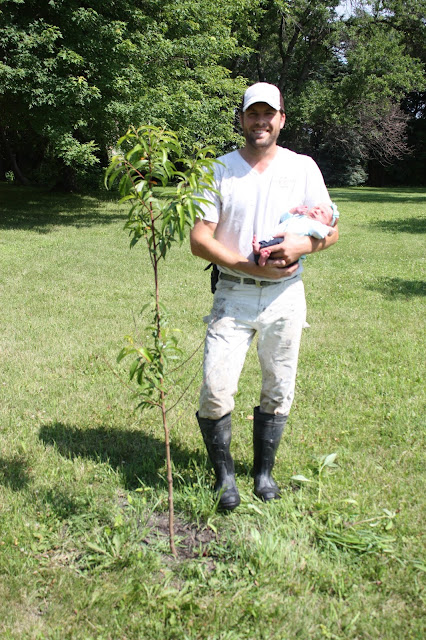Placentophagy: (from 'placenta' + Greek φαγειν, to eat; also referred to as placentophagia) is the act of mammals eating the placenta of their young after childbirth. (Source: Wikipedia)
Y'all. Don't freak out. But I ate my placenta. Or rather I am eating it. Don't worry-I didn't hack away at it with knife and fork in the hospital, but rather I had it dehydrated and encapsulated into pills.
Thanks to some girlfriends who are passionate about childbirth, I became very intrigued about this process. Both of them had done it and benefited from it. After doing research of my own, I decided it was something I wanted to try. My girlfriend referred me to a doula who offered these services. It was fairly easy to secure her, as the work really couldn't begin until I gave birth. The doula, Natasha, gave me instructions on what I needed to do, and I approved it with my doctor before delivery. He noted it in my chart and was also an advocate for me after I gave birth, as my nurses thought it was the most obscure thing they had ever heard.
In the hospital I just had to make sure it was saved, as typically it is discarded of after birth. They placed it in a sealed plastic bag, and then placed it on ice until Natasha could come retrieve it. Since I gave birth in the middle of the night, I waited until a decent hour to notify her that I had delivered. She came right to my hospital, and Nick met her outside with it. Her turn around time is quick, and she often delivers the pills to her clients right back at the hospital before they are even discharged. I only stayed in the hospital for roughly a day and a half, so Natasha delivered them to my home the following day.
Here are some of the reported benefits of consuming your placenta:
- Reduction in feelings of postpartum sadness and anxiety
- Higher energy levels
- Balanced hormone levels
- Replenished iron levels
- Increased milk production
- Faster return of uterus to pre-pregnancy state
- Less post partum bleeding
I followed the recommended dosage for the first few weeks postpartum, and the most notable effects I experienced were the reduction of postpartum sadness along with higher energy levels. I mean, I did experience bouts of brief sadness here and there, and of course I was tired, but both were less than I had experienced with my three previous births. I am now nine weeks postpartum, and I take two pills once daily, or whenever I feel I need a little boost. I don't necessarily believe that encapsulating your placenta gives you some kind of magic pill, but I do believe that it has benefited my body and general well being. I have not experienced any negative effects from doing so.
One sweet little feature of Natasha's services is that she also dehydrated my umbilical cord. That's the little heart shape in the photo above. Following suit from our other children, we planted a peach tree for Alma at our farm property. Alma's umbilical cord is buried underneath it, where it will once again serve to nourish and grow life.
If you live in my area and are interested in placenta encapsulation, click here for Natasha's information. If you do not live near me but this still piques your interest, I encourage you to seek out doula or midwife services in your area and ask for a recommendation for this service.



I researched this when I was pregnant with V, but never took the plunge. You are too cool. And I have a great placenta story for you when we hang out next time ;) xo
ReplyDeleteI've had a few friends do this, and they've all had good things to say about the process and the benefits. Wish I had known about it when my own littles were, well, little!
ReplyDelete